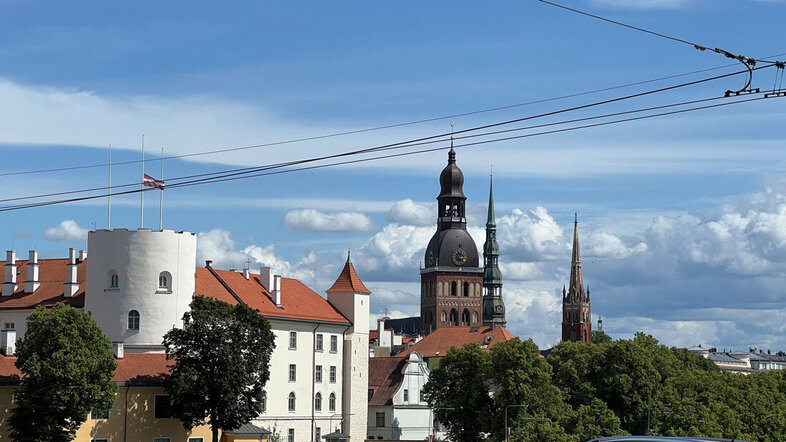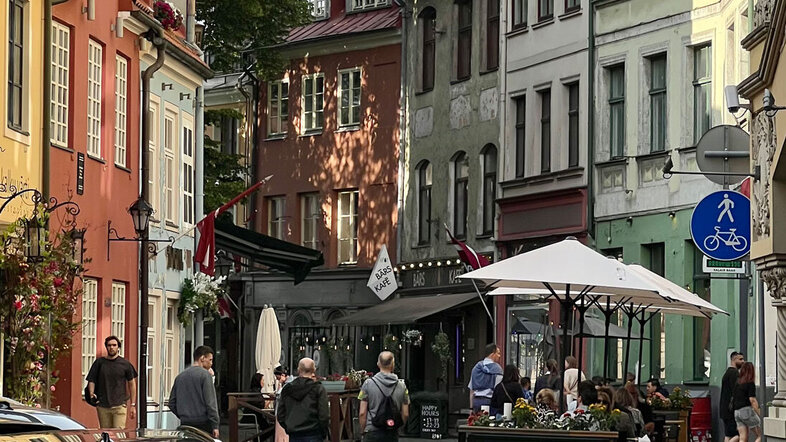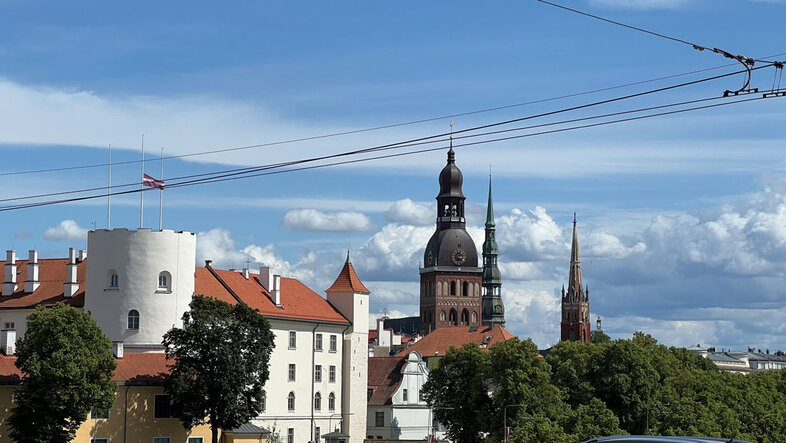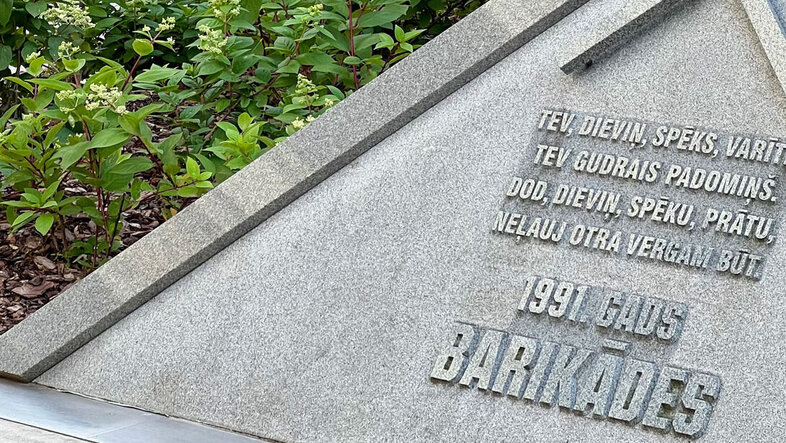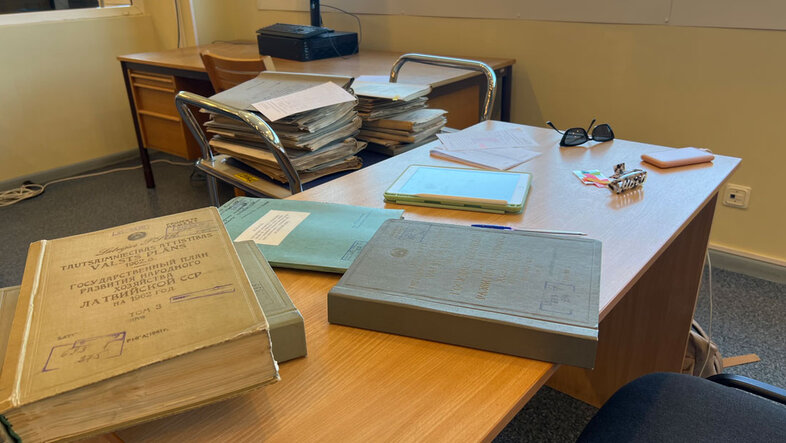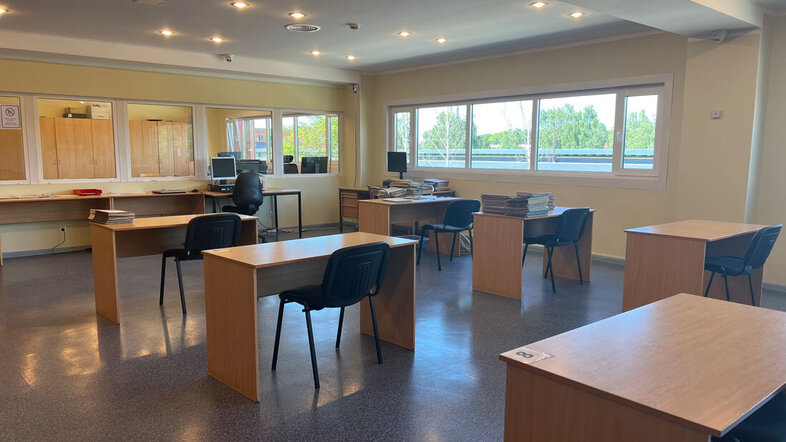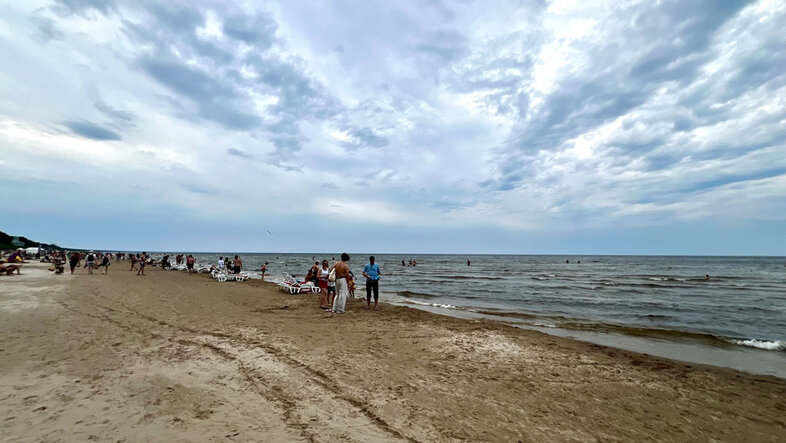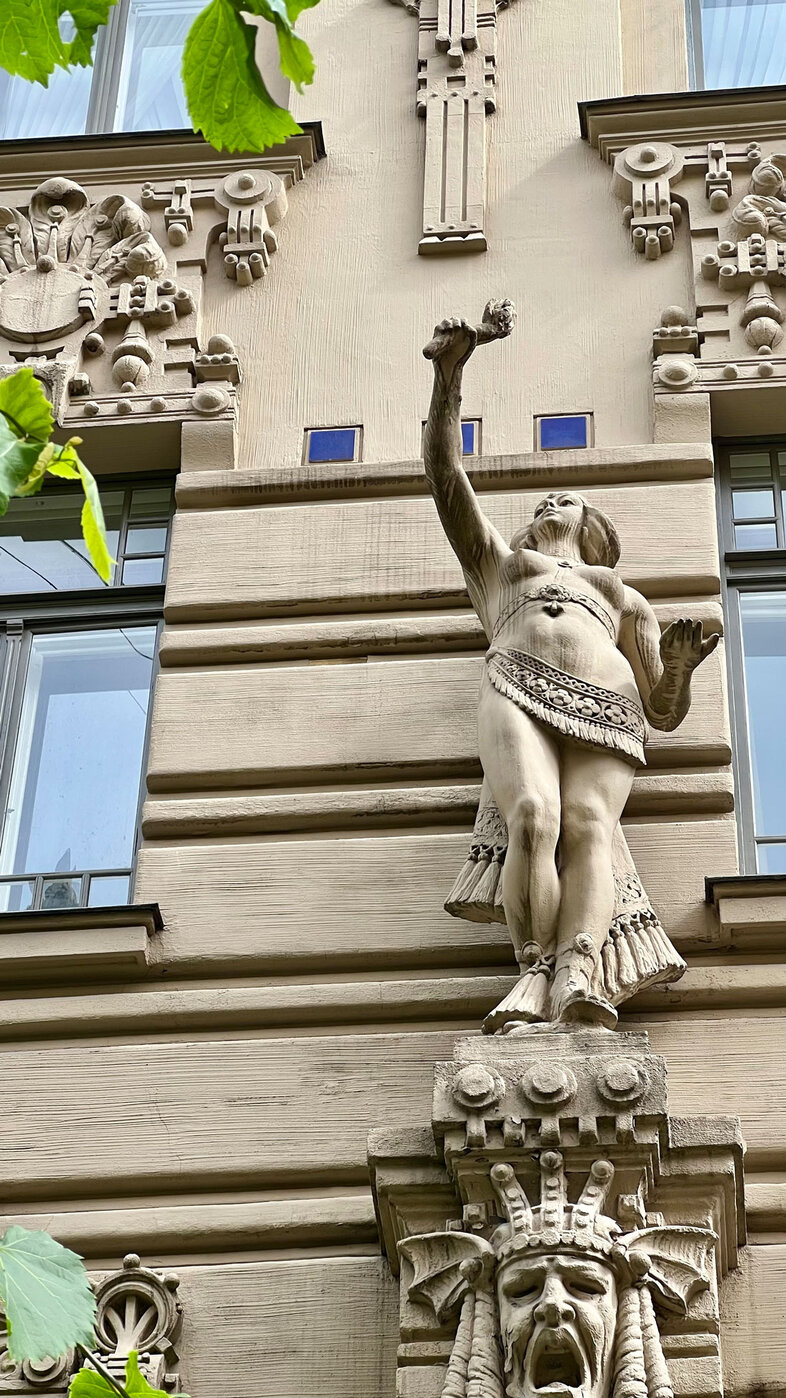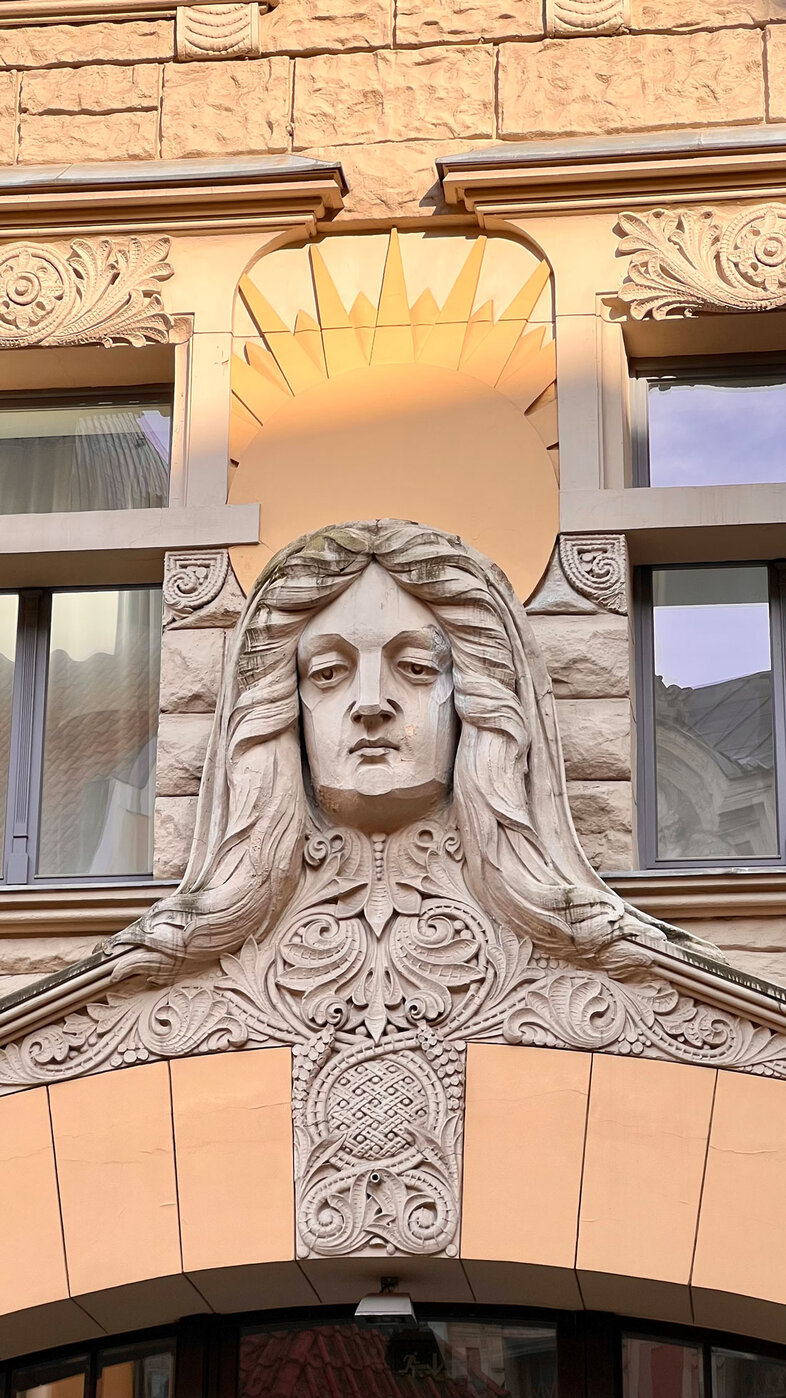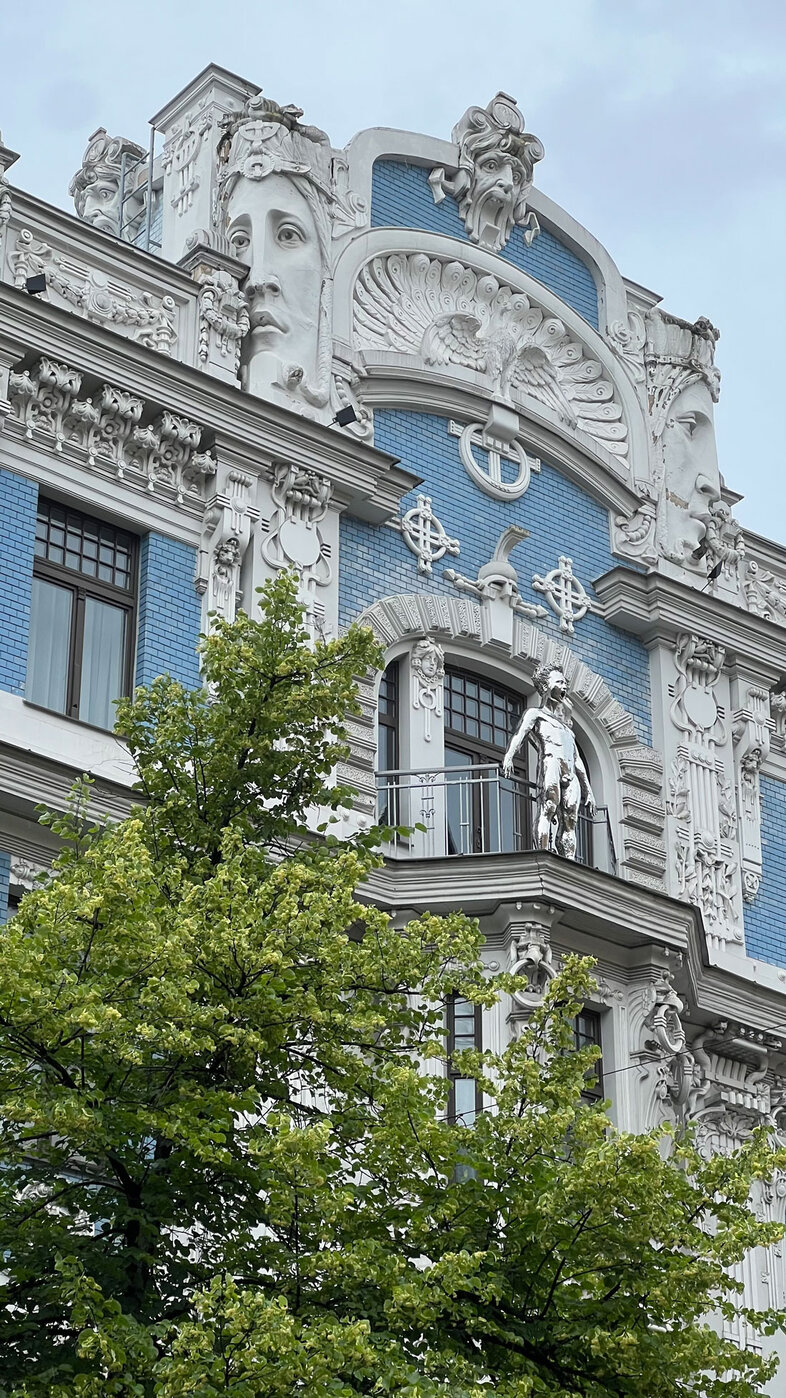From Vienna to Riga: Detective work in Soviet archives
Daria Tashkinova, a PhD candidate and historian at the Research Center for the History of Transformations (RECET), is currently traveling for research. The Rudolphina team caught up with her between archival sites — Latvia and Estonia — to talk about what it's like to work in archives abroad.
So, Daria — where are you writing to us from today?
I am working in the Latvian National Archives in Riga. My dissertation focuses on labour migration in the late Soviet Union, specifically in the Soviet Baltic republics, so Riga is an obvious place for me to conduct some of my research.
Riga: Latvia's architectural jewel by the sea
- Distance from Vienna: 1101 km.
- In the medieval ages, Riga grew to prosperity as a key port of the Hanseatic League.
- The historical centre of Riga, renowned for its Art Nouveau style buildings, is listed by the UNESCO as a World Heritage Site.
- Riga's history includes periods under the rule of Poland-Lithuania, the Swedish, German and Russian Empires, and the Soviet Union.
We'd love to know why Riga is an important research site for you… but please tell us a bit more about the city itself! It is a place worth visiting as a tourist? What is "fun to see and know" from your perspective?
Riga is such a wonderful place with a rich and varied history. Those interested in history will find plenty to explore: from its origins as a stronghold of the Teutonic Knights, to its industrial development and architectural prowess at the beginning of the 20th century, to its tragic history of occupation by both the Germans and Soviets, followed by Latvia regaining its independence and joining the EU.
I've really enjoyed getting to know the many chapters of Riga's and Latvia's story.
What are you looking for in Riga? Why is this place especially relevant for your research?
The cornerstone of my project is the job assignment system in the Soviet Union. In very simple terms, every graduate of a higher educational institution in the USSR was assigned a job based on their qualification. While these assignments could be anywhere in the country, I'm specifically looking at how this system was implemented in the Soviet Baltic republics, particularly Latvia and Estonia. What role did it play in the sovietisation of these republics?
The job assignment system is, unfortunately, a fairly understudied topic in both Western and post-Soviet academia, even though it affected the lives of every single university graduate in the Soviet Union. I hope to help fill that gap.
One of the most important places for my research is the Latvian State Archive of Personnel Files. It holds the records of HR departments from now-defunct enterprises across the Soviet period. Looking through workers' personnel files — with their names, photos, work histories, and assignments — makes the topic feel much more personal and tangible. It's one thing to study a system on paper, but quite another to see how it played out in individual lives.
That’s the best part of archival research for me ‒ it feels like being a detective chasing a lead.Daria Tashkinova
What is it like to work in an archive? I am imagining dusty boxes of documents in a dark, isolated room. Is it tedious? What makes it exciting?
Archival research can be both fun and tedious. It's incredibly exciting when you finally get your hands on documents you've only read about, or when you uncover details you haven't seen referenced anywhere before.
It often starts with a simple question: why was this group of people from, for example, Lviv sent to Riga to work at the Riga Semiconductor Plant "Alfa" or the VEF (State Electrotechnical Factory)? Or how were decisions made about who was sent where? And then I comb through communications between different factories, reports, and statistics, hoping to make connections and find answers. That's the best part of archival research for me — it feels like being a detective chasing a lead.
The tedious part? The lack of time! Unfortunately, I have to work incredibly fast while I am in the archive to go through as many documents as possible; I never know when (or if) I will ll have access to them again. I try to take pictures of everything even remotely useful, so most of my archival sessions turn into speed-photographing and frantic note-taking. The actual analysis usually happens later, back in Vienna, long after I've left the archive.
Doctor It! podcast on archival research
What does it mean to do archival research?
Doctor it! is a podcast run by PhD candidates in the humanities and the social sciences at the University of Vienna. In their latest episode, host Emily Genatowski speaks with Dorota Vargová, doctoral candidate in History, and Felix Maile from the Department of Development Studies about their experiences with archives and databases. Learn about the extraordinary lengths they had to go to chase primary sources down, which ethical questions they have to deal with and why they are not using any AI tools for their analyses.
Listen to the brand new Doctor it! Episode 19 – Library and Data in the 21st Century wherever you get your podcasts.
Why aren't these materials digitalised already? Will they ever be?
Most of the materials I work with are not digitised, except for the inventory lists of different archival funds and sub-funds. These were incredibly important in the lead-up to my trip, as they helped me locate and order the documents I wanted to look at in the reading rooms in advance. I don't really expect the documents relevant to my research to ever be completely digitised. There are just too many of them, the Soviet bureaucracy produced far too much paper.
It’s one thing to read a lot about a topic, but seeing and touching the documents for yourself just makes everything so much more real.Daria Tashkinova
It's summer, but you're digging through history indoors. Do you miss the sunlight?
There is actually plenty of sunlight! The reading rooms are rather cosy and feel like a library, it's very quiet there. I really enjoy working in the archives — it's one thing to read a lot about a topic, but seeing and touching the documents for yourself just makes everything so much more real.
Work aside, what fun things do you do in your free time?
I've mostly been getting to know Riga and Latvia! It's my first time here, so I'm exploring the city and visiting museums. On a particularly hot day, I took a short trip to Jūrmala, a town on the Baltic coast just a short train ride from Riga, to enjoy some time by the sea.
If you can take back three things to Vienna, which ones would they be?
Oh, it's got to be food: ķiploku graudziņi (toasted garlic rye bread) or pīrāgi (bread rolls with a filling). And anything from the Riga Central Market, the veggies there are so fresh and delicious!
Back in Vienna, how do you process all the data you have collected?
Since I only have a limited amount of time in Riga, I am collecting as much data as possible. When I return to Vienna, I will firstly need to filter through everything I have collected and determine what is useful and what is not. Then, I will add information to my database according to year, government branch, type of information, and other criteria. Hopefully, some patterns will emerge that I can develop further.
Finally, we're curious how you were able to finance this trip. What kind of funding did you receive to be able to work abroad this summer?
I am fortunate to be part of a doc.funds programme under RECET (Research Center for the History of Transformations). It's an interdisciplinary doctoral training programme funded by the Austrian Science Fund FWF. Among other resources, it provides funding for research trips that support doctoral research.
doc.funds
The FWF doc.funds doctoral programme "The Dynamics of Change and the Logics of Transformation: State, Society, and Economy at Critical Junctures" is a collaboration between RECET, the Doctoral School of Historical and Cultural Studies (DSHCS), and the Vienna Doctoral School of Social Sciences (ViDSS). It focuses on case studies from the 20th and 21st centuries and aims to train researchers capable of working at the intersection of history and the social sciences.
Anything else you'd like to add about your trip abroad?
Sounds boring, but I really enjoy the weather here! It's very mild and cool, such a lovely contrast after the heat in Vienna.
Thank you for taking the time out of your busy schedule to speak with us! Enjoy the rest of your trip — we're excited to see what insights your research will bring!
Learn more about Daria Tashkinova's project
Assignments to Towns of Provincial Importance: Labour Migration, Empire-Building and the Job Assignment System in the Late Soviet Union
The project aims to examine the job assignment system for graduates of higher education institutions in the late Soviet Union and early post-Soviet period (1960s-1990s) as a tool for studying the process of Soviet state building. It aims to explore the migration patterns triggered by the system and how they influenced the spread of the Soviet system to Estonia, Latvia and Lithuania with the help of highly educated white-collar cadres. The project looks at developments after the collapse of the USSR to examine the transformation of economic, political and hence educational models from socialist command economy to the demands of the free market, and the adaptability of Soviet education and work models to the emerging independent democracies.
She holds a bachelor's degree in European studies from Ural Federal University and a joint master's in Global History from the Free University of Berlin and Humboldt University of Berlin. During her studies, she served on the editorial board of Global Histories: A Student Journal. She spent several years working in German political think tanks, focusing on civil society cooperation and the protection of human rights in Eastern Europe and Russia.
